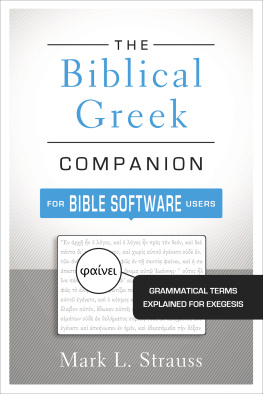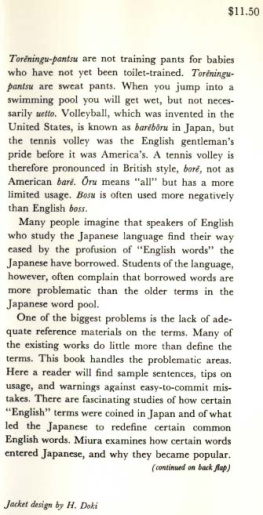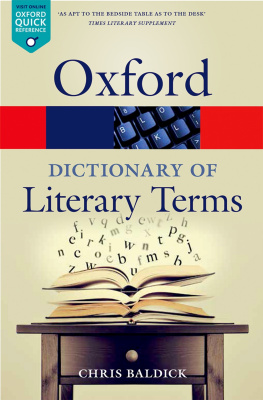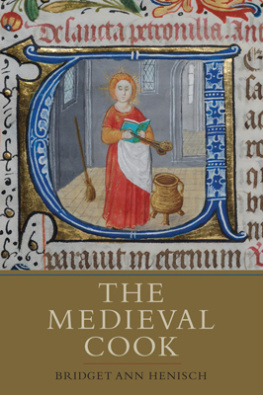OXFORD PAPERBACK REFERENCE
The Oxford Dictionary of
English Grammar
Sylvia Chalker is the author of several grammar books, including Current English Grammar and The Little Oxford Dictionary of English Grammar. She was also a contributor to The Oxford Companion to the English Language.
Edmund Weiner is Deputy Chief Editor of the Oxford English Dictionary and co-author (with Andrew Delahunty) of the Oxford Guide to English Usage.

The most authoritative and up-to-date reference books for both students and the general reader.
Abbreviations
ABC of Music
Accounting
Archaeology
Architecture
Art and Artists
Art Terms
Astronomy
Bible
Biology
British Women Writers
Buddhism
Business
Card Games
Chemistry
Christian Church
Classical Literature
Classical Mythology
Colour Medical Dictionary
Colour Science Dictionary
Computing
Dance
Dates
Earth Sciences
Ecology
Economics
Engineering
English Etymology
English Folklore
English Grammar
English Language
English Literature
English Place-Names
Euphemisms
Film
Finance and Banking
First Names
Food and Nutrition
Fowlers Modern English Usage
Geography
Handbook of the World
Humorous Quotations
Irish Literature
Jewish Religion
Kings and Queens
Kings English
Law
Linguistics
Literary Terms
Mathematics
Medical Dictionary
Medicines
Modern Design
Modern Quotations
Modern Slang
Music
Nursing
Opera
Paperback Encyclopedia
Philosophy
Physics
Plant-Lore
Plant Sciences
Political Biography
Political Quotations
Politics
Popes
Proverbs
Psychology
Quotations
Sailing Terms
Saints
Science
Shakespeare
Ships and the Sea
Sociology
Statistics
Superstitions
Theatre
Twentieth-Century Art
Twentieth-Century Poetry
Twentieth-Century World History
Weather Facts
Whos Who in Opera
Whos Who in the Twentieth Century
Word Games
World Mythology
World Religions
Writers Dictionary
Zoology
*forthcoming
The Oxford Dictionary of
English Grammar
SYLVIA CHALKER
EDMUND WEINER


Great Clarendon Street, Oxford ox2 6 DP
Oxford University Press is a department of the University of Oxford. It furthers the Universitys objective of excellence in research, scholarship, and education by publishing worldwide in
Oxford New York
Auckland Cape Town Dar es Salaam Hong Kong Karachi Kuala Lumpur Madrid Melbourne Mexico City Nairobi New Delhi Shanghai Taipei Toronto
With offices in
Argentina Austria Brazil Chile Czech Republic France Greece Guatemala Hungary Italy Japan Poland Portugal Singapore South Korea Switzerland Thailand Turkey Ukraine Vietnam
Oxford is a registered trade mark of Oxford University Press in the UK and in certain other countries
Published in the United States
by Oxford University Press Inc., New York
Sylvia Chalker and Edmund Weiner 1994
The moral rights of the authors have been asserted
Database right Oxford University Press (maker)
First published 1994
First issued as an Oxford University Press paperback 1994
Reissued, with corrections, in new covers 1998
All rights reserved. No part of this publication may be reproduced, stored in a retrieval system, or transmitted, in any form or by any means, without the prior permission in writing of Oxford University Press, or as expressly permitted by law, or under terms agreed with the appropriate reprographics rights organization. Enquiries concerning reproduction outside the scope of the above should be sent to the Rights Department, Oxford University Press, at the address above
You must not circulate this book in any other binding or cover and you must impose this same condition on any acquirer
British Library Cataloguing in Publication Data
Data available
ISBN-13: 978-0-19-280087-9
ISBN-10: 0-19-280087-6
Printed in Great Britain by
Clays Ltd. St Ives plc
Contents
Introduction
Grammar, etymologically speaking, is related to glamour. Though few people might claim that grammar is glamorous in the modern sense, there is considerable interest in English grammar today and no shortage of grammar books, ranging from small basic books aimed at children or elementary-level foreign learners, through more advanced manuals to large scholarly works. The trouble is they may be about the same language, but they do not always speak the same language. The very range of the grammar books on offer presents problems.
There are many ways of describing grammar, and a wealth of terminology. Some of it strikes the layman as jargon (disjunct, matrix, pro-form, stative); other words appear ordinary enough but conceal specialized meanings (assimilation, comment, focus, specific). Worse, the same terms, old or new comparison, formal, pronoun, reported speech, root, stress are used by different grammarians with different meanings.
Such difficulties are not entirely avoidable. Any subject of study needs specialist words. Different grammarians are entitled to analyse language in different ways, and fresh viewpoints may call for new terms. But while grammarians sometimes explain what they mean by a new or unusual term, it is rarer for them to point out that they are using an existing term in a different way. This is a cause of real confusion. Another problem is that new terms may in the end turn out simply to be alternatives for an old concept a synonym in fact (e.g. progressive, continuous).
We have tried in this dictionary to indicate the range and variety of meanings that may lie behind a single term. The main emphasis is on the terminology of current mainstream grammar, but we have also included a considerable number of entries on the related areas of speech and meaning more grandly known as phonetics and semantics. Users will also find some terms from generative grammar, which has greatly influenced mainstream grammar in recent years but some of the more theoretical terminology of linguistics and semantics is excluded. We have also on the whole excluded outdated grammatical terminology, apart from a few traditional terms which may be familiar to the general reader.
The authors would like to thank Professor Flor Aarts, of the Katholieke Universiteit, Nijmegen, who read an early draft of the book: his comments, we believe, have led to many improvements, but the authors are alone responsible for any blemishes that remain. We would also like to thank our families for their support, encouragement, and, at times, forbearance.
SC
ESCW
London, Oxford 1993
Organization
1 Entries are strictly alphabetical. Thus:
agent
agentive
agentless passive
agent noun
2 Where two or more terms are
Next page












